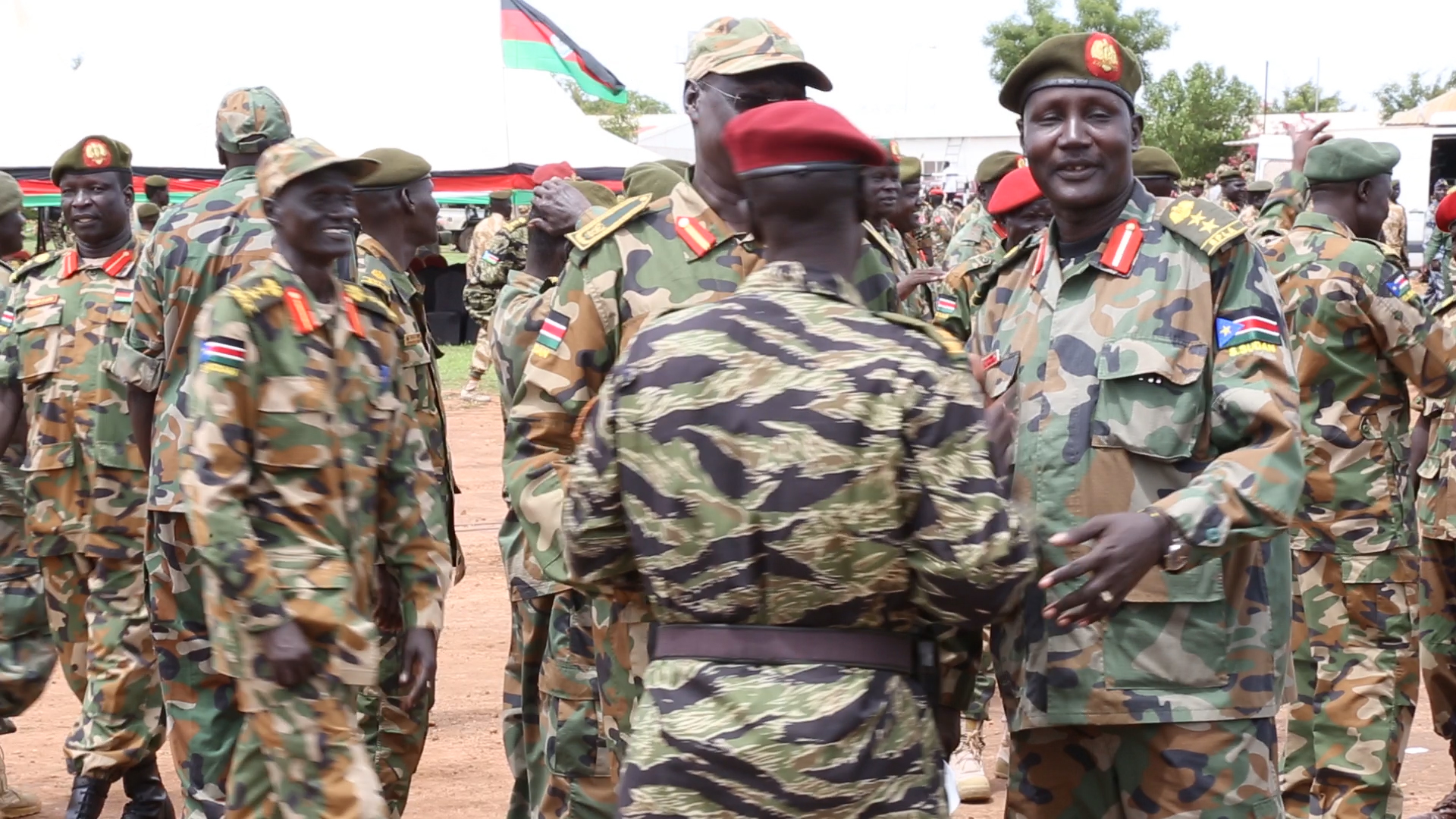
Communal Violence Continues as South Sudanese Remember Pope’s Homily

Let us lay down the weapons of hatred and revenge
Two years on, South Sudan is remembering Pope Francis’ visit to the world’s youngest nation on February 3-5, 2023. The former Archbishop of the Church of England, Archbishop of Canterbury Justin Welby accompanied the now 87-year-old Pope Francis, leader of nearly 1.4 billion Catholics. The Moderator of the Church of Scotland, Reverend Iain Greenshields also joined the Pope on the pilgrimage of peace.
The pope arrived in South Sudan just a day after a local official said 27 people were killed in a related-communal violence between cattle herders and other residents in Central Equatoria state’s Kajo-keji.
South Sudanese officials warmly welcomed the Pope and led him to Dr. John Garang’s Mausoleum, where he conducted a homily attended by President Salva Kiir Mayardit, his five vice presidents, 10 state governors, and other key political leaders.
“In the name of Jesus and his Beatitudes, let us lay down the weapons of hatred and revenge, in order to take up those of prayer and charity,” Pope said to at least 100,000 people who attended his homily.
He urged the Christian nation to be “people capable of building good human relationships as a way of curbing the corruption of evil, the disease of division, the filth of fraudulent business dealings and the plague of injustice.”
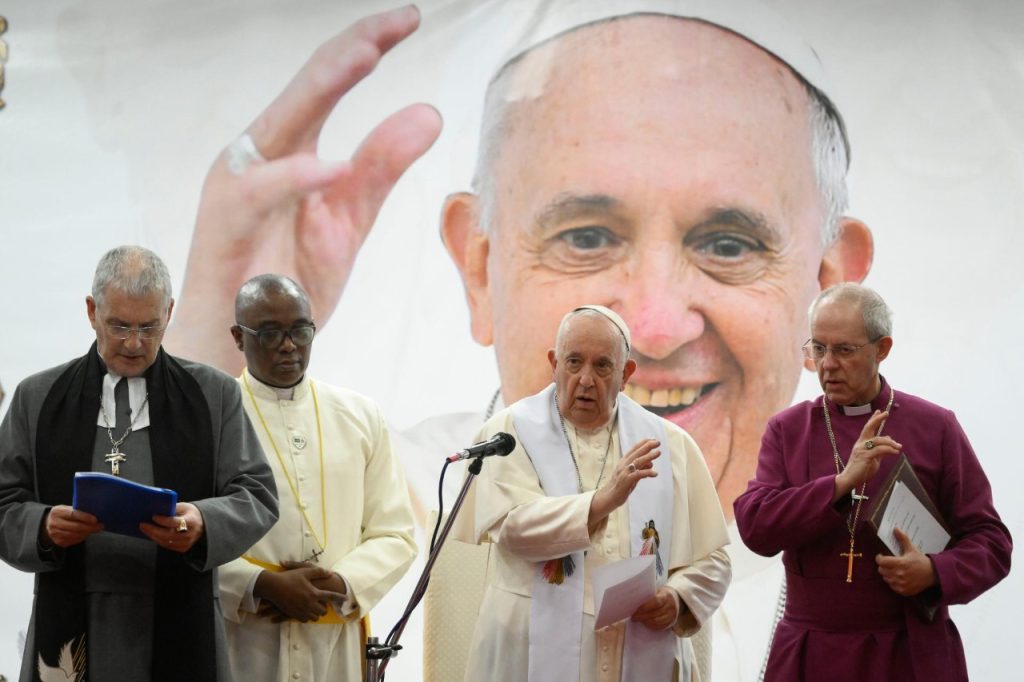
The Pope explained that the Beatitudes mean “we must not aim to be strong, rich, and powerful but humble, meek, and merciful; to do no evil to anyone, but to be peacemakers for everyone.”
South Sudan gained its independence in 2011 and plunged into a brutal civil war two years later, resulting in the deaths of an estimated 400,000 people. Inter-communal violence also continued affecting communities across the country.
In May 2020, during SPLM Day (16th May), President Salva Kiir Mayardit called on the people of South Sudan to shun violence but engage in farming.
“To achieve food security, we must end all forms of violence in this country, whether it is communal violence or political violence,” President Kiir said.
“I, therefore, call upon the SSPDF, SPLA-IO, and SSOMA, especially NAS, to observe the terms of the Rome Declaration and Resolution strictly, particularly the ceasefire provision.”
Two weeks ago, tensions arose between cattle keepers from Bor, Jonglei State, and communities in Magwi County, Eastern Equatoria State, whose livelihoods depend solely on subsistence farming. The Magwi Community accused the herders of grazing their animals on over 70 hectares of unharvested crops. In a meeting chaired by Eastern Equatoria State Governor Louis Lobong Lojore, herders from Bor agreed to compensate those whose crops were destroyed by cattle. However, the herders requested that the Magwi Communities grant them two more months until the rainy season begins. This request was denied, and the herders were given only two weeks to leave Magwi County. They continued grazing their cattle normally.
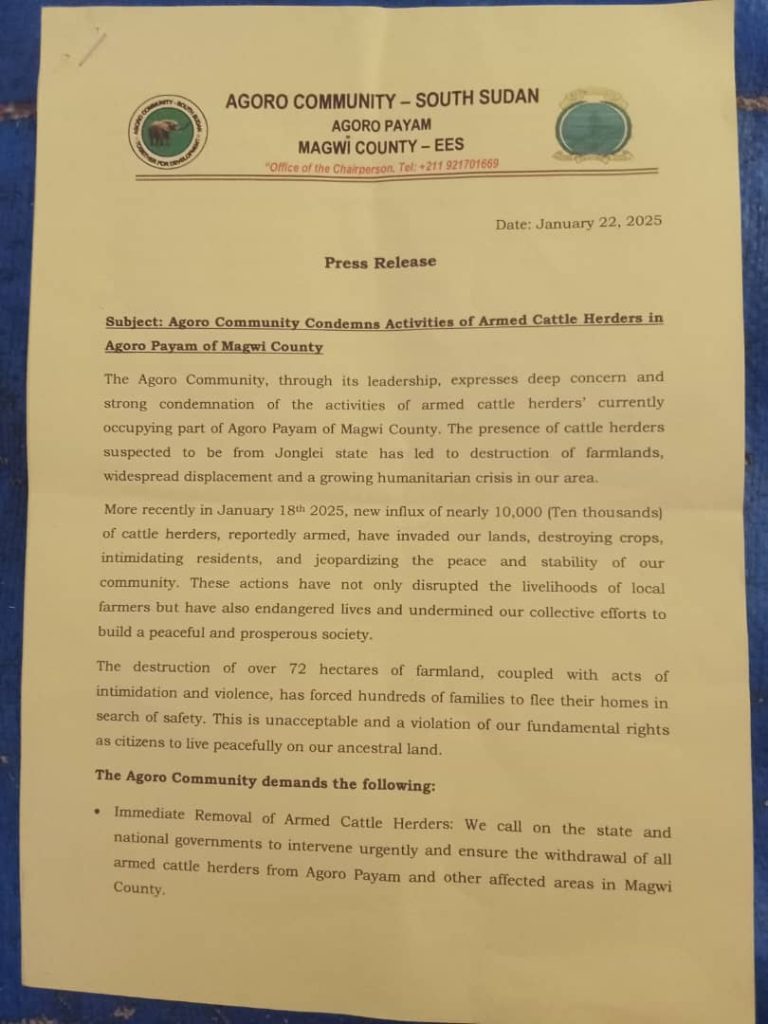
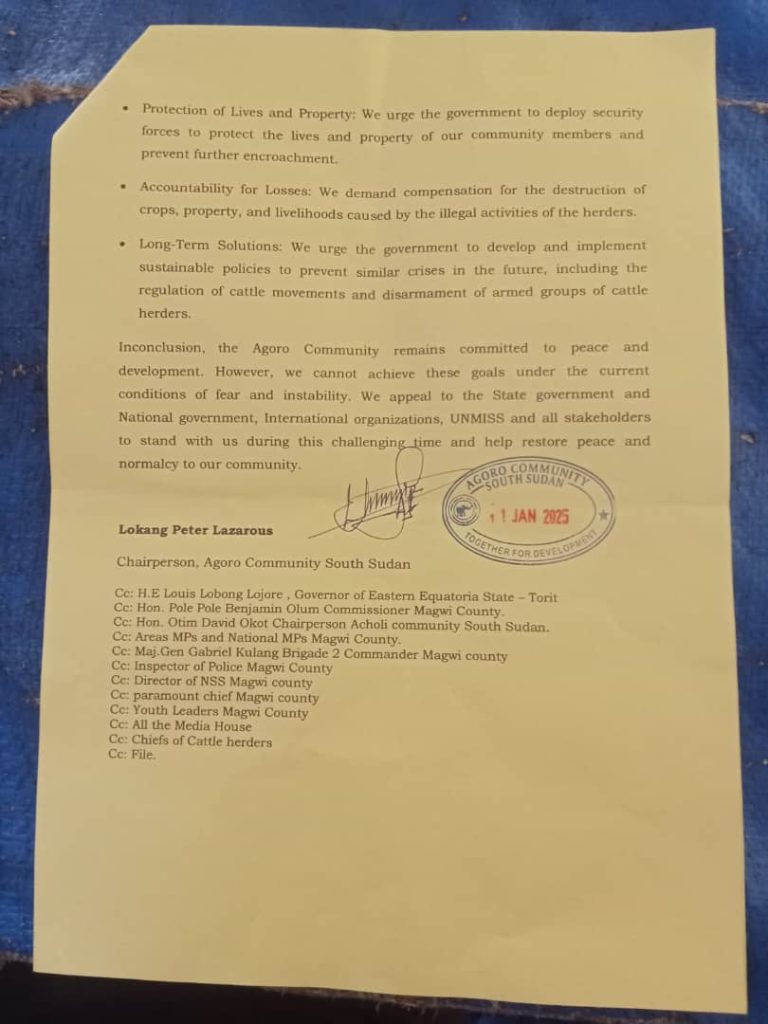
On January 31, 2025, the herders reported that their cattle camps in Nyolo village were attacked by the communities. The attacks prompted reactions from Jonglei State authorities, with some describing the raids as “organized.” A lawmaker in the South Sudan National Legislative has called for de-escalation of the tensions.
On January 6, 2025, the UNMISS Human Rights Division of the UN Peacekeeping Mission in its quarterly brief reported that Communal violence continues to exact heavy toll on civilians across South Sudan.
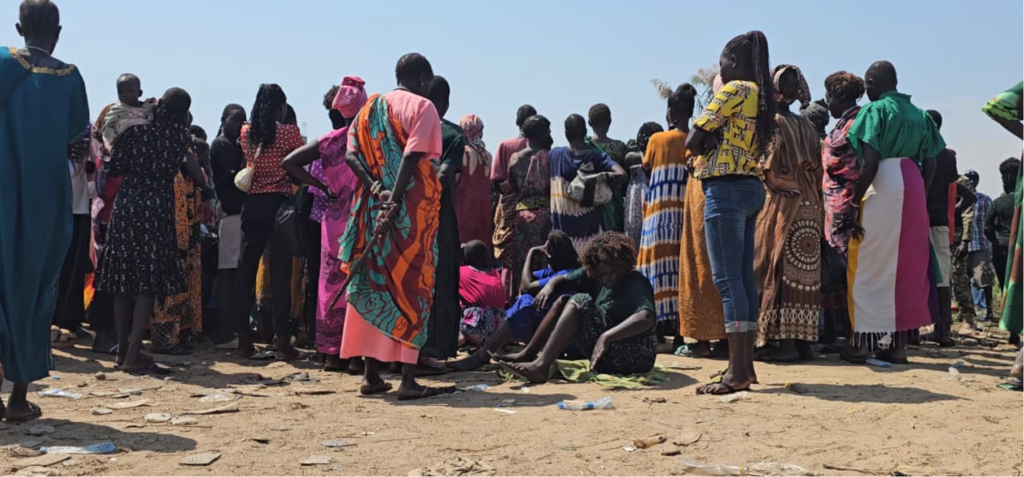

“This trend of increasing violence against women and abductions is alarming. While UNMISS continues to proactively protect civilians, I call for concerted efforts by national, state and local authorities, as well as community leaders to resolve longstanding grievances and find locally sustainable solutions to conflict drivers,” said Nicholas Haysom, the Secretary-General’s Special Representative and Head of UNMISS.
“Vitally, I urge the Government of South Sudan to swiftly investigate human rights violations and abuses and hold all perpetrators to account.”
Ter Manyang Gatwech, the Executive Director of the Center for Peace and Advocacy (CPA) told Juba Echo TV during the Morning Echo Show on January 8, 2025, that he was not surprised about the communal violence because that is what the communities experience whenever the dry season is approaching.
“This does not give an excuse to the government to allow citizens to kill each other because the government is ultimately responsible to do anything,” Gatwech said.

Gawetch expressed his anticipation to hear the Revitalized Government of National Unity’s (R-TGoNU) response to the UNMISS report and work out mechanisms to address the root causes of the continuous violence in the country.
“I was surprised that since they [the UNMISS] released the report, the RToGNU decided to remain silent without saying anything – and this is a serious concern.”
Juba Echo TV attempts to get comments from the government Spokesperson, Michael Makuei Lueth, was unsuccessful as his active phone went unanswered during press time.





























